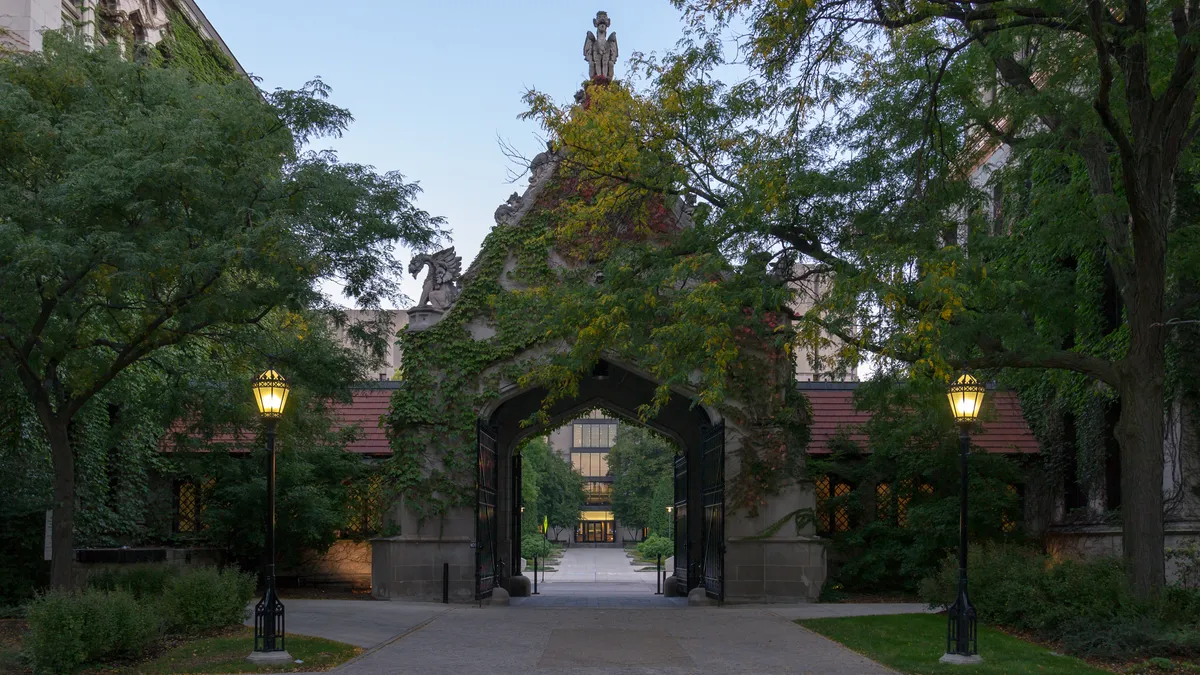Standardized tests have always had their critics. Some have taken issue with the way the tests are written, saying they require a certain level of cultural and class-based knowledge or show more about how much students pay for test prep rather than how intelligent they are. But originally, whether it was for graduate, law, medical, or business school, admissions officials have looked to standardized tests for insight into whether a student would be able to handle the rigor of a given program.
For a long time, research supported the idea that these tests were strong predictors of future student performance. More recent research has chipped away at this proposition, and graduate schools are being forced to decide whether to hold onto the tests or let them go.
Sometimes, the decision-making process is spurred on by competition.
The University of Southern California’s Annenberg School of Communication does not require the GRE for students with more than 10 years of professional experience applying to its master of communication management program. Rebecca Weintraub, director of the program, said the school’s launch of its online degree program prompted a second look at the GRE requirements. These students tended to be older and more experienced, and over time program administrators realized the GRE scores were not predictive of their success. Comparative analytics helped program leaders define a cutoff.
Weintraub is confident in the decision to waive the GRE requirement for prospective students with at least 10 years of professional experience. She says the jury is still out on whether students with five or more years of experience should also qualify for such a waiver, even though many of Annenberg’s competitors have done away with standardized testing requirements altogether.
In some respects, this gives Weintraub pause. “These are good schools,” Weintraub said. “They’re not fly-by-nights, they’re not for-profits. They are tier-one research universities.” But competition or not, Weintraub has no plans to rush her consideration of broadening the waiver.
When it comes to law school, programs have less flexibility because their actions are regulated by the American Bar Association’s accreditation standards. Last year, the ABA revised its standards, however, allowing programs to admit up to 10% of a single class without considering their LSAT scores. Students were only allowed to skip the test if they were applying to a JD program at the same university, meaning standalone law schools did not have any flexibility to offer.
The SUNY Buffalo Law School was one of a handful to take advantage of the option, allowing students in its undergraduate honors program to apply without taking the LSAT. For the 2015-16 school year, one lone student was accepted into the JD program on these terms. As expected internally, the offer to apply without an LSAT score was not a game-changer.
But it certainly got the school a lot of attention.
Lindsay Sutton, associate director of admissions, said the law school has fielded quite a bit of criticism since it announced its direct admission program.
“I think sometimes people equate standardized test requirements with prestige and maybe they saw this as a step down for us, but to be honest the academic accomplishments of students in UB’s honors program are very impressive, if not more impressive than students who would be coming in with an LSAT score,” Sutton said.
It seems there are critics on both sides. Some fight against the use of standardized test scores in admissions, some fight against their removal. Sutton’s advice to administrators is to be prepared for the scrutiny and proceed confidently either way.
Would you like to see more education news like this in your inbox on a daily basis? Subscribe to our Education Dive email newsletter! You may also want to read Education Dive's look at how colleges and universities are using CRM platforms in admissions and recruitment.









